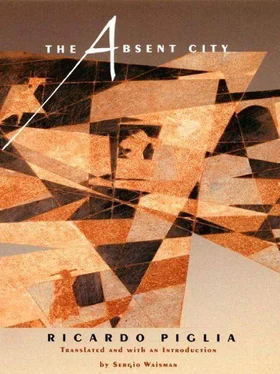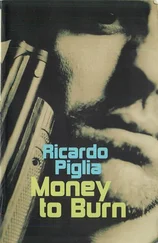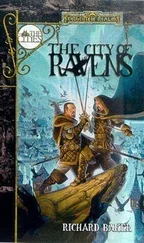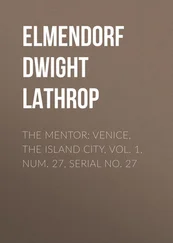“The president is an addict and he doesn’t even care if people know. Addicts are never embarrassed, because you can’t be embarrassed if you don’t have any sexual libido,” he said.
“Of course,” another man said, also sitting at the counter. “Once my wife didn’t leave the house for a week because she had a wart this big.” He showed everyone the end of his pinkie finger. “A whole week. She didn’t want to go out because she said she was disfigured.”
“She had tons of sexual libido,” the cashier said.
“A whole week without going out.”
“And Perón, with all those spots and blotches on his face, to the point where they were calling him ‘stain-face.’ And he was seen everywhere, he would have himself photographed up close, out in the open, with his leather face.”
“When a man has power, if he has it, he wants to be seen.”
“Because politics is a mirror,” the other man said. “Faces and faces that appear and look at each other and get lost again and are substituted by new faces that appear and look at each other and get lost again.”
“It swallows up faces,” said the man who had first spoken.
“But the mirror is always there,” the other man said, and dropped his head on his arms resting on the counter. “Give me another beer. Do you want another one too, pal?” he asked Junior.
“No, I’m set,” Junior said, and at that moment he saw the girl and immediately recognized her. She was coming from the end of the platform and smiled at him at once.
“Now, the truth is,” the cashier said, “that television is a mirror.”
“Exactly,” the other man said. “A mirror that holds onto the faces.”
“It has all of them inside and when you look at it you see the other’s face.”
“That’s the beauty of it,” the cashier said, growing pensive.
“I’m leaving,” Junior said, and set some money down on the counter. “Another round for everyone on me.”
There were thank-yous and good-byes as he got up from the stool and walked toward the girl.
They left the train station and walked across to Plaza San Martín. The girl was very attractive, but distant, and she gave off an air of passivity, almost of indifference. As if nothing in the world had any importance. Apathetic. Or maybe afraid, Junior thought. Strange and very beautiful, with a tight Mickey Mouse T-shirt and faded jeans. Right away she began to recite her story. Mike had been wrong and had died because violence only leads to more violence. He lived clandestinely, he commanded several armed operations, he retreated from military activity, moving from one house to another twice a day, until they finally caught him. “In’73 the way I interpreted reality was much more driven by emotions than by political rationale. Today my view of the past is completely different. We were living in the midst of ideological fanaticism. I think the revision needs to be based not only on these last few years, but that it must go back much further. We grew up in a political culture and with a civil conscience both of which were totally wrong. We had to live through this catastrophe in order to learn the value of life and how to respect democracy.” She repeated her story like a parrot, in a tone of voice so neutral that it sounded ironic. She had repented. She had attended self-help groups. It was impossible to tell if she was being sincere or if she was schizophrenic. She walked distractedly, every once in a while looking up at Junior.
“Do you find me attractive?” she asked suddenly. She pressed up against him without any warning, and right away moved away, and then walked on, near the wall. The story of her life was the way she had of getting people to love her, immediately she became submissive and started in with her confessions. You could tell she was naive and gullible, but she was not dumb. Frail and pliable, she could have been his daughter.
“Of course,” Junior said, and felt a strange emotion stir within him. He had thought about his daughter because it could have been his daughter who had come back, like many others, ten years later. Fourteen years later. But it was not his daughter, and that is why Junior had that strange sensation. It was like an emotion, and yet it had a cold quality, so perhaps it was not an emotion at all. He simply liked to be seen walking with the girl and have people think he was sleeping with her. He was amazed at himself, at how simple everything was. “You escaped from the Clinic,” he said to her.
“No one escapes from there,” she said. “You go there because you want to, when you can’t get off the stuff, then you have to go. There’s no such thing as willpower, if you get into it you’re lost, it’s this stupid thing they’ve invented to make you kill yourself.”
She was not dumb, Junior thought again, only inexperienced. She wanted to help him and told him so right away. She had read Junior’s reports, he did not know the whole truth, she had just come from there.
“From where?” Junior asked her.
“Don’t be a smart-ass,” she said. They had no references in common, everything was simultaneously the same and yet different, as if they spoke two different languages.
Junior had to move slowly, let her take the initiative.
“I like it around here,” she said after they sat on a bench facing the Círculo Militar. “Enemy territory. See the kinds of places they have, always out of sight, they lock themselves inside those galleries and spend their lives training. I’ve seen them,” she said. “My father was in the military. They practice fencing their whole lives and then shoot you down with real bullets. Do you know how much I’m risking by being here with you?”
“Of course I know,” Junior said.
He decided to keep quiet, to let her develop her strategy.
“I’m going to confide in you,” she told him. “That’s why I called you. Do you know the Engineer?”
“Yes. I mean, they’ve told me, I’ve never seen him.”
“Do you want to see him?”
“Of course,” he said.
“Here,” she said to him. “This is for you.”
It was an airmail envelope folded in half.
“Don’t open it here,” she told him. “Put it away, you can open it later.”
“I’ll put it away,” Junior said, and put the envelope in a coat pocket.
“Where do you know him from?” she asked him.
“Everyone talks about him. But I saw the night watchman at the Museum, a Korean guy, Fuyita.”
After Junior told her what he knew, she confirmed that the Engineer lived in what was practically a subterranean fortress, that he lived locked up in there, that he was an affable man and very intelligent. He was trapped because the authorities accused him of being irresponsible and criminally insane. They wanted to put him in prison.
“The Engineer never sleeps,” she said. “He lives for his experiments. And that’s why they say that he’s crazy.”
Junior wanted to know what the experiments were.
“Verbal,” she said. “Proofs of stories about life, versions and documents that people take to him so that he can read and study them.”
The Engineer received many letters and phone calls, everyone wanted to interview him. Junior had to hope he would have good luck, and count on the contacts that Julia could get. They were going to enter through a clandestine network while all the foreign correspondents and the official newspapers waited their turn. They had to find a place to hide and wait until tomorrow. She spoke so clearly, in such an indifferent tone, that he ended up believing she was telling the truth. They slept together in a hotel on Tres Sargentos, after eating at the Dorá. Julia seemed simultaneously removed and experienced. She took off all her clothes and hugged him before Junior had finished checking out the room. There was something distant yet real about the girl. Her body was full of scars and she moved skillfully in bed, like a professional pretending to be scared. Junior had to wait for her in the hotel, she told him as she smoked a cigarette, she was going out to get a contact. It was dangerous, but he had to take a risk if he was going to make any progress, and he took the risk. He had let himself get hooked, but he did not regret it. In the morning he was awoken by loud knocks on the door. They said it was a routine inspection. Julia, who came in with the policemen and who had perhaps turned him in, looked at him as if she did not recognize him. He saw her smoking at the window again, as if she had never left. The guys from Narcotics had brought her back. They accused her of dealing and thoroughly searched the room and Junior’s clothes.
Читать дальше












